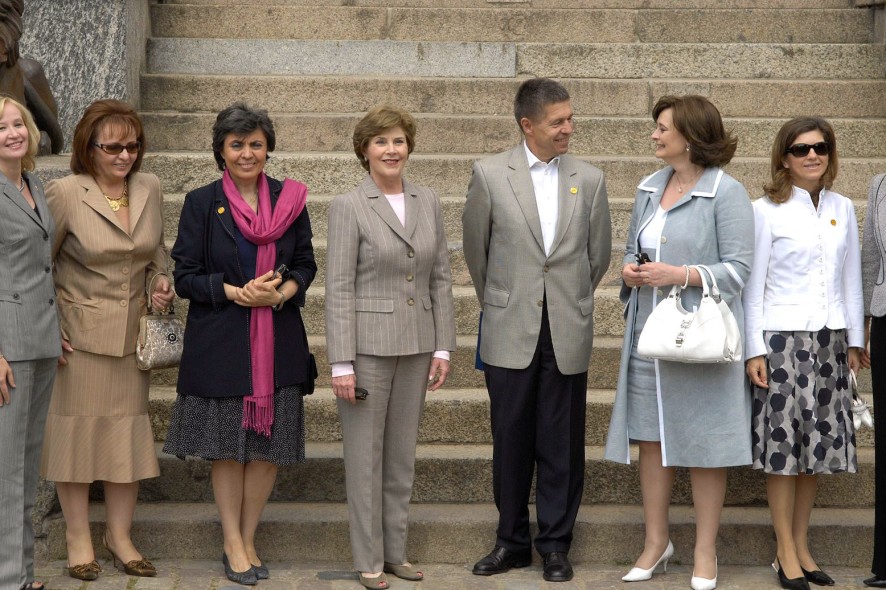by Louise Bicknese
I am a feminist. There, I said it. The ‘F-word’ has been associated with bra-burning man-haters for a long time, but since Emma Watson’s fabulous speech for the UN and her ‘HeForShe’-campaign, gender inequality issues are back on the political agenda. And they are rightfully there. I interviewed Vĕra Jourová, Eurocommissioner for Justice, Consumers and Gender Equality, to see what the EU does and can do to tackle these issues.
One of the most important issues of gender inequality is, without a doubt, the pay gap. Research by the International Labour Organization has recently shown that, if progress towards equal payment between men and women continues at this rate, it will take 70 more years to close the gender gap in payment (Source). ‘The EU is closely monitoring the gender pay gap, and we are keeping a close eye on how equal pay laws are applied in practice‘, says Jourová. The EU is currently trying to enhance transparency in payment; in the eyes of the commissioner, this is the first step towards awareness and thus change in gender differences in payment.
However, it still happens often that women do not even get into the same positions as men because of their gender. This is called the ‘glass ceiling’: the unseen, yet unbreachable barrier that keeps minorities and women from rising to the upper rungs of the corporate ladder, regardless of their qualifications or achievements. Mrs. Jourová explains that she has experienced this herself: ‘I experienced different treatment because I am a woman. It was when I became a Minister for regional development.‘ One possible solution often proposed for this could be a quota that specifies a minimum percentage of women in, for example, management positions.
‘On average women represent only 20% of board members in Europe’s top listed companies. This doesn’t make economic sense, especially when you think that around 60% of new university graduates are women. […] Studies suggest that greater gender diversity in senior positions has the potential to improve corporate governance and boost economic performance. Progress has been slow and self-regulation by companies is clearly not doing the trick. I think companies need a push to bring about real change.‘
To help this, the Eurocommissioner aims to adopt a EU Directive in this area in order to reduce this inequality. Therefore, she advocates a strong stance on the different treatment of women with the same qualifications as their male counterparts.
Yet, this is not the only issue. Another problem on the professional level is the work-life balance. Mrs. Jourová talks about an interesting law the EU has adopted on this matter: ‘a law on parental leave that gives all parents the right to at least four months of leave, of which one month cannot be transferred to the other parent – a little nudge for men to take over childcare duties!‘ This way, men can play an important role in female emancipation as well, as they too would get the opportunity to spend more time with their families. On what men can do, commissioner Jourová is very clear:
‘It takes two to tango! Let me give you an example: men spend half as much time as women on caring for children, and they do not dare to take their paternity or parental leave. Work-life balance is not only a women’s issue. We won’t achieve gender equality at work without changing men’s and women’s attitudes at work and in the family.’
And how about gender equality on the decision-making level of the EU? Looking at the current Eurocommissioners, there are nine women and eighteen men – quite the difference. However, as Mrs. Jourová explains, there has already been some progress in this field, thanks to ‘former Commission President Barroso and current President Juncker who called on Member States to nominate more female commissioners. The European Union pushes Member States for more gender equality and should therefore lead by example.‘ In any case, there is no gap in payment between Eurocommissioners, fortunately.
One thing is for sure however: change does not come about automatically. Women and men as well should keep working on gender inequality issues, it is ‘not just a question of time‘, commissioner Jourová says, urging women to play their part, all in their own way. Unfortunately, regardless of all the progress on paper, this still often differs from the real world. Mrs. Jourová realises this as well, but plans to tackle this problem head-on:
‘We should “finish the unfinished business”, close the gaps in pay, employment, pensions and decision-making. Our policies should build on the past achievements and meet the new challenges. For this, I want to continue to use the full range of our instruments: legislation and its enforcement, financial support, mutual learning and awareness-raising activities.’
An important trap we should not fall in, is letting this issue become one in which different ideologies oppose each other. It is, in her eyes, a policy priority in its own right. Mrs. Jourová is a feminist, just like all her male colleagues, who joined the HeForShe campaign. In fact, she mentions that nearly all EU citizens are actually feminist, since most European citizens believe that equality between men and women is a fundamental right and that tackling this inequality should be a priority for the EU.
Lastly, Mrs. Jourová gives inspiring advice:
‘If you want to reach top positions, go and get what you want. It is your call, fight for it. Develop the right skills, expertise, and networks, and let others know what you can bring to the board/political party. Seek mentors and sponsors with board connections (or in political parties), show strong performance and ask for assignments that increase your global experience and knowledge.’
And you? What do you think? Are you a feminist?
I want to thank Mrs. Jourová for the time and effort of answering the questions.




